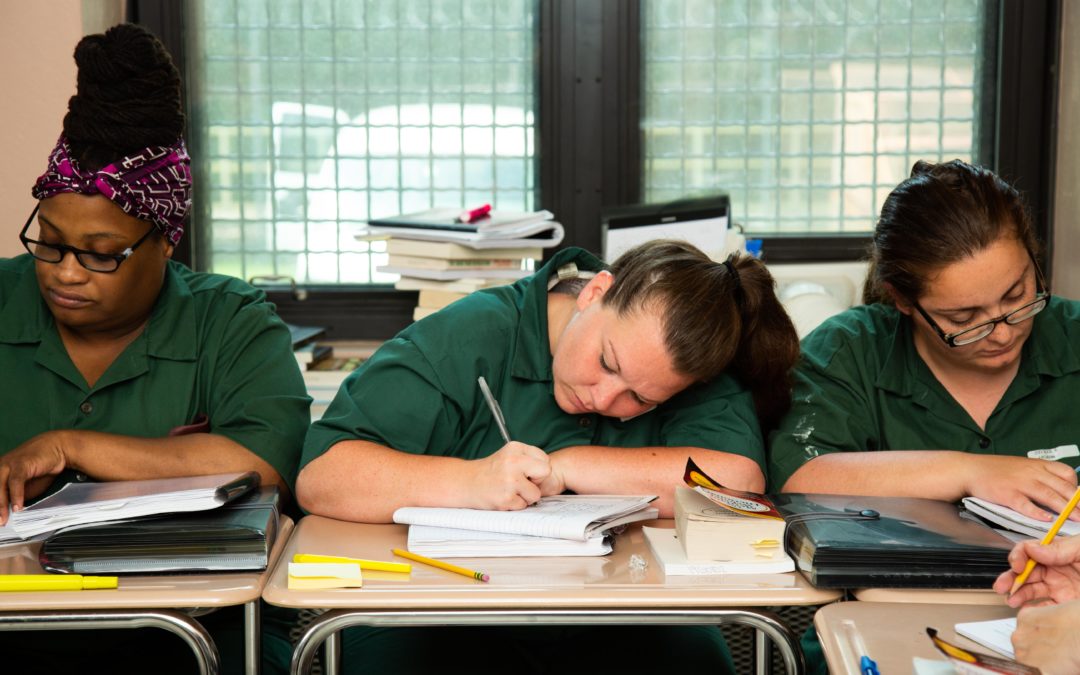Arguably one of the largest state student financial aid programs in the nation, the Tuition Assistance Program (TAP) provides grants to low-income New York residents to help pay for college. Yet shortly after the passage of the Violent Crime Control and Law Enforcement Act of 1994, which eliminated the access of Pell Grants for students in prison, New York prevented incarcerated people from accessing TAP funding for higher education.
Students who are able to pursue education while in prison are more likely to find employment post-release, bringing increased opportunity and social mobility to their families and communities. By removing access to TAP funding for students in prison, New York revoked access to the tools that enable people to transform their lives.
We have awarded a Spark Grant to the Bard Prison Initiative (BPI) to engage in a statewide campaign that will educate the public about the benefits of TAP restoration for students who are incarcerated in New York. These efforts will raise the voices of BPI Alumni to share their personal stories of how access to in-prison higher education programs has impacted their lives.
 While the cost of TAP to individuals in prison would be negligible in relation to the state’s total TAP expenditures, TAP restoration would yield significant cost savings. A RAND study found that for every $1 a state invests in college-in-prison programming, taxpayers save $4-5 dollars in terms of incarceration costs. More importantly, TAP funding to any one student does not affect funding available to any other students. No student has ever lost a TAP dollar as a result of a student in prison receiving TAP.
While the cost of TAP to individuals in prison would be negligible in relation to the state’s total TAP expenditures, TAP restoration would yield significant cost savings. A RAND study found that for every $1 a state invests in college-in-prison programming, taxpayers save $4-5 dollars in terms of incarceration costs. More importantly, TAP funding to any one student does not affect funding available to any other students. No student has ever lost a TAP dollar as a result of a student in prison receiving TAP.
Eliminating Racial Opportunity Gaps
Meaningful gains in racial equity must include closing racial opportunity gaps. Therefore, TAP restoration is a matter of educational equity and racial justice. Black and Brown people constitute more than 70% of incarcerated New Yorkers; these communities are hyper-policed, over-criminalized, and disproportionately imprisoned. With access to higher education, historically excluded and underserved populations that have been disproportionately impacted by mass incarceration will be able to transform their lives, their families, and communities. Restoring TAP creates opportunities and college en-ramps for Black and Brown communities that have been excluded from equal access to higher education. Access to higher education in prison will allow New Yorkers who are incarcerated to amass the tools and develop the skills they will need to rebuild their lives post-release.
Increasing Access to Higher Education
 Restoring TAP would build on a national conversation to increase access to higher education for people in prison following the December 2020 passage of a bill to restore Pell Grants for incarcerated students.
Restoring TAP would build on a national conversation to increase access to higher education for people in prison following the December 2020 passage of a bill to restore Pell Grants for incarcerated students.
“These archaic bans preventing students in prison from accessing federal and state tuition assistance dollars restrict individuals from transforming their lives through the power of higher education,” says Phillip Kim, president and CEO of the Michelson 20MM Foundation. “It is time to invest public dollars in programming with proven results to enhance lives and promote public safety.”
Michelson 20MM is a private, nonprofit foundation seeking to accelerate progress towards a more just world through grantmaking, operating programs, and impact investing. All activities are made possible thanks to the generous support of renowned spinal surgeon and inventor Dr. Gary K. Michelson and his wife, Alya Michelson.

